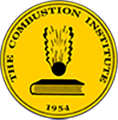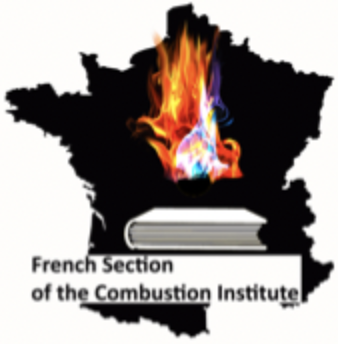Institutional partners
 |
The Combustion Institute |
| The Combustion Institute is an international, non-profit, educational and scientific society. Founded in 1954, CI promotes and disseminates research activities in all areas of combustion science and technology for the advancement of many diverse communities around the world. The International Symposium on Combustion is its world congress and major biennial meeting. |
 |
CNRS |
| The French National Centre for Scientific Research is among the world's leading research institutions. Its scientists explore the living world, matter, the Universe, and the functioning of human societies in order to meet the major challenges of today and tomorrow. Internationally recognised for the excellence of its scientific research, the CNRS is a reference in the world of research and development, as well as for the general public. |
 |
Rouen Normandie University |
| With over 32,000 students and 38 research units, the University of Rouen Normandy (URN) plays a leading role in teaching and research in Normandy. URN is involved in regional teaching and research clusters, and promote interregional research activities by developing nationally and internationally renowned scientific partnerships. URN therefore partakes in numerous international projects in partnership with over 40 countries. |
 |
INSA Rouen Normandie |
| Ranked as Normandy’s top public engineering school and included among key French institutions, INSA Rouen Normandie plays a major role in the training of engineers in France. Its mission includes education (10 engineer curriculums, 3 apprenticeship programs, 2 master’s specialization® degrees), research (8 laboratories) and the spreading of scientific culture in the following fields of expertise: information systems, big data, mathematics, chemistry and processes, risk management and industrial site recovery, energy, propulsion systems, mechanics, industrial performance, civil engineering, and urban design and planning. |
 |
Normandy region |
| The Regional Council of Normandy is the executive body for the French Region of Normandy. |
 |
Rouen Normandie Metropole |
| Rouen Normandie metropolis is an intercommunal structure created to develop and lead together a project of economic, ecological, educational, cultural and social development of their territory in order to improve its cohesion and competitiveness and to contribute to a sustainable and inclusive development of the regional territory. It shall promote metropolitan economic functions, its transport networks and its university, research and innovation resources, in a spirit of regional and interregional cooperation and with a view to balanced territorial development |

|
Rouen |
Rouen is the historic capital of the Normandy region, the heiress of a long history marked by the heroic figure of Joan of Arc. Very long ago Rouen was the second city of the kingdom (until the end of the 18th century) and a very active port in the Middle Ages.
City of Art and History, it has kept from its past, and despite the destruction of war, an exceptional heritage of half-timbered houses, religious buildings, when it is not its famous Big Clock. |

|
LabEx EM3C |
| The EMC³ « Energy Materials and Clean Combustion Center » project belongs to the LABEX winners of the « Laboratory of Excellence » call for projects of the French government’s « Investissements d’avenir » program.
This research center is the only one dedicated to both materials for energy and clean combustion.
|

|
Institut Carnot ESP |
|
The Energy & Propulsion Systems Carnot Institute (ESP) is a leading research and innovation player in the field of energy and environmental performance optimization.
Gathering academic research laboratories and innovation centers of technological exchange based in Normandie, France, it provides its industrial partners with expertise, know-how and experimental means.
Its 500 researchers aim to successfully implement new transformation processes to tackle the Decarbonization challenge. ESP is part of the Carnot network « Research that drives industrial innovation » and certified by the French Ministry for Research since 2006.
|

|
Faculty of Science and technology |
| The Faculty of Science and Technology offers a rich range of diplomas both general and professionalized and oriented research (doctoral schools) on 3 sites: Mont-Saint-Aignan, Le Madrillet and Évreux. This training offer is strongly based on the activity of our 14 recognized research laboratories (some are the first in France in their field) |

|
Faculty of Law, Economics and Management |
| The Faculty of Law, Economics and Management of Rouen offers new teaching methods, advanced technologies, active research and a lively community life, all in new premises, in the heart of the city and in total interactivity with the professional world. |
Organised by
 |
CORIA |
Created in 1962, CORIA, “Complexe de Recherche Interprofessionnel en Aérothermochimie", is a Joint Research Unit (UMR) attached to the Institute of Engineering and Systems (INSIS) of the CNRS, the University of Rouen Normandy and the Institute of Applied Sciences (INSA) of Rouen Normandy. With 170 persons, the laboratory is located on the Madrillet Science and Engineering Campus, near Rouen in Normandy.
Its research focuses on reactive and non-reactive flows: two-phase flow, turbulent mixing, combustion, plasmas …, and optics and lasers. It combines theoretical studies, modelling, numerical simulations and experiments on different scales, with a very strong specificity in the development of optical and laser diagnostics and the development of high performance computations. Their diversities and complementarities are available on the pages of the Departments. |
 |
Groupement Français de Combustion (GFC) |
The Groupement Français de Combustion (GFC), the French section of the Combustion Institute, is an association of researchers and engineers, from the academic and industrial world, whose objectives are as follows:
- To promote combustion research in France
- To strengthen the links between research and applications in combustion
- To contribute to the international influence of research conducted in France
- To strengthen the links with the European Sections
- To help young researchers in their search for employment |
|


